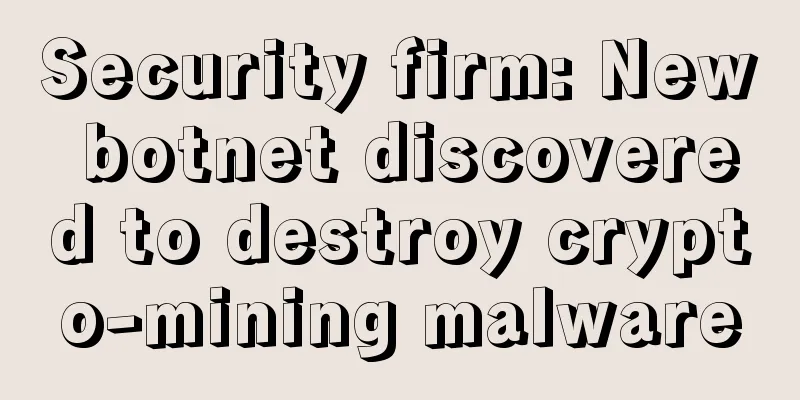Petrwrap ransomware attacks rage, victims pay Bitcoin ransom and find out they were scammed

|
The ransomware "WannaCry" previously caused a sensation for attacking hundreds of thousands of computers around the world. On June 27, computers in many European countries suffered similar attacks. A variant of ransomware called "Petrwrap" invaded thousands of computers in many companies and government departments. Ukraine was the worst hit. Ukraine's power grid, government offices, and banking institutions including the central bank, the National Bank of Ukraine, were attacked. Similar to WannaCry, the developers and operators behind the Petrwrap ransomware also demanded that the victim pay $300 in Bitcoin before the attackers would send the decryption key to the victim. According to images obtained by Business Insider, the information released by the developers of the Petrwrap ransomware includes a single Bitcoin address and a payment request for $300 in Bitcoin. Because the Bitcoin blockchain is open, transparent and decentralized, anyone on the network can freely track Bitcoin wallet addresses and their transaction information. According to the transaction information provided by the Blockchain.info blockchain browser, the developers of the Petrwrap ransomware have received 45 Bitcoin ransoms from victims so far, with a value of more than $10,000. However, an announcement from German email service provider Posteo shows that all email addresses associated with the Petrwrap ransomware attack have been shut down. The Posteo team mentioned in the announcement:
At present, it seems that Posteo has most likely received a notice from the German regulator requiring it to terminate or at least suspend email addresses associated with criminal activities. Therefore, after discovering that someone used Posteo email addresses to carry out the global Petrwrap ransomware attack, the Posteo team blocked several email addresses listed in the Petrwrap ransomware email. However, the main issue raised by Posteo’s decision is that victims who paid the hackers a $300 Bitcoin ransom will not receive a decryption key because Petya’s developers no longer have access to their email addresses. That is, the Petrwrap ransomware team cannot identify who sent the ransom to the Bitcoin receiving address. In Posteo's opinion, the decision to block email addresses could benefit those who have not been hit by the Petrwrap ransomware and dissuade victims from paying the attackers. However, the developers of Petrwrap can easily change the email information in the ransomware. Regardless, Posteo’s decision to terminate the ransomware email address is detrimental to both attackers and victims, as it eliminates the possibility of victims receiving decryption keys. In February of this year, the Federal Bureau of Investigation (FBI) advised ransomware victims not to pay Bitcoin ransoms for ransomware attacks because no one can guarantee that the ransomware attackers will provide the decryption key. The FBI stated in the announcement:
|
<<: Coin Zone Trends: Bitcoin Price Trends Based on Big Data This Week (2017-06-30)
>>: From Decent to Yuelian, a six-month leap
Recommend
Where does a man get cheated on his wife?
Cheating is an act that everyone hates very much....
What does a mole on the corner of a woman's eye mean?
Generally speaking, it is very common to have mol...
Bitmain is about to go public in the US, raising more than $1 billion: core financial data exposed
In June this year, Bloomberg reported that Bitmai...
The face of a woman who will have a difficult love life
The face of a woman who will have a difficult lov...
What are the facial features of women who are destined to remarry? Which women are prone to remarriage?
If two unsuitable people are forced to be togethe...
Facial features of people who always like to complain
There are many worries in life, including work, i...
What kind of face shape does a woman have to bring good luck to her husband? What are the face shapes of women who bring good luck to their husbands?
Women are very worried that they will meet a bad ...
How to read the marriage line in palmistry
In palmistry, the marriage line represents a pers...
"The Secret History of Bitcoin": What is the most exaggerated Bitcoin valuation?
Source: Hashpai Author: LucyCheng When the crypto...
Bitai Wallet develops a coin deposit platform SDK, making it easy for Bitcoin startups to build a coin deposit platform
In the field of Bitcoin entrepreneurship, the mos...
What kind of people with bad looks should not be made friends with?
It is something that everyone knows that you shou...
Mole position and destiny: Mole position that represents wealth
Mole position and destiny: Mole position that rep...
Why do the three stops represent different stages of life?
Why do the three stops represent different stages...
It’s hard to get a graphics card. When can I buy a graphics card at the original price?
In the early morning of September 2, 2020, Nvidia...
What does a long fate line and a short life line mean?
The fate line and the life line are both importan...









